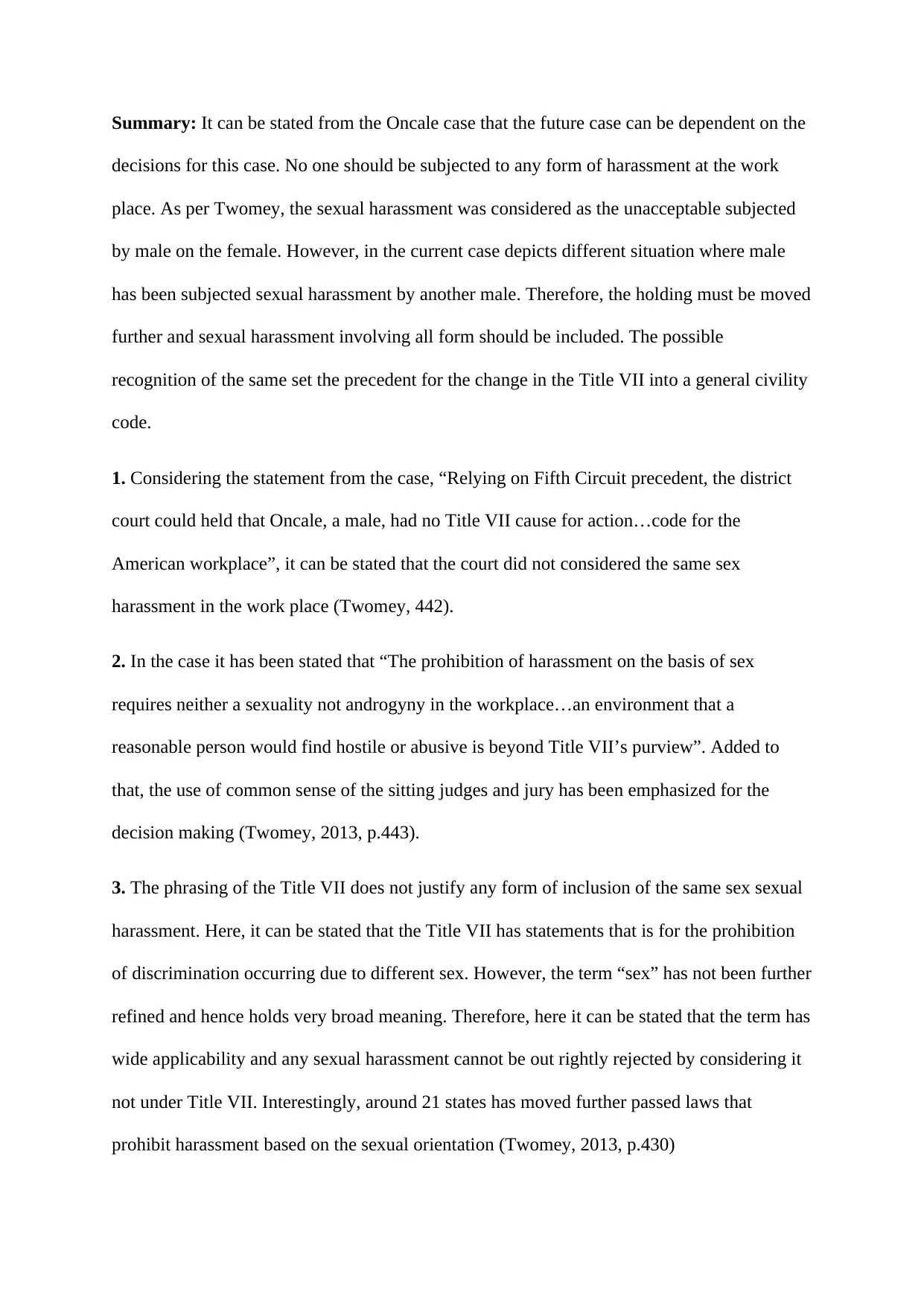Sexual Harassment in the Workplace
VerifiedAdded on 2019/09/16
|2
|411
|304
Essay
AI Summary
The Oncale case sets a precedent for considering same-sex sexual harassment in the workplace. The court's initial refusal to recognize same-sex harassment was based on Fifth Circuit precedent, but this decision can be seen as limiting. The case emphasizes the importance of common sense and reasonable person standards in determining what constitutes hostile or abusive behavior. Although Title VII prohibits discrimination based on sex, it does not explicitly exclude same-sex sexual harassment, leaving room for interpretation. In fact, 21 states have passed laws prohibiting harassment based on sexual orientation, highlighting the need for further refinement of the term 'sex' in Title VII.
Contribute Materials
Your contribution can guide someone’s learning journey. Share your
documents today.
1 out of 2
![[object Object]](/_next/static/media/star-bottom.7253800d.svg)







